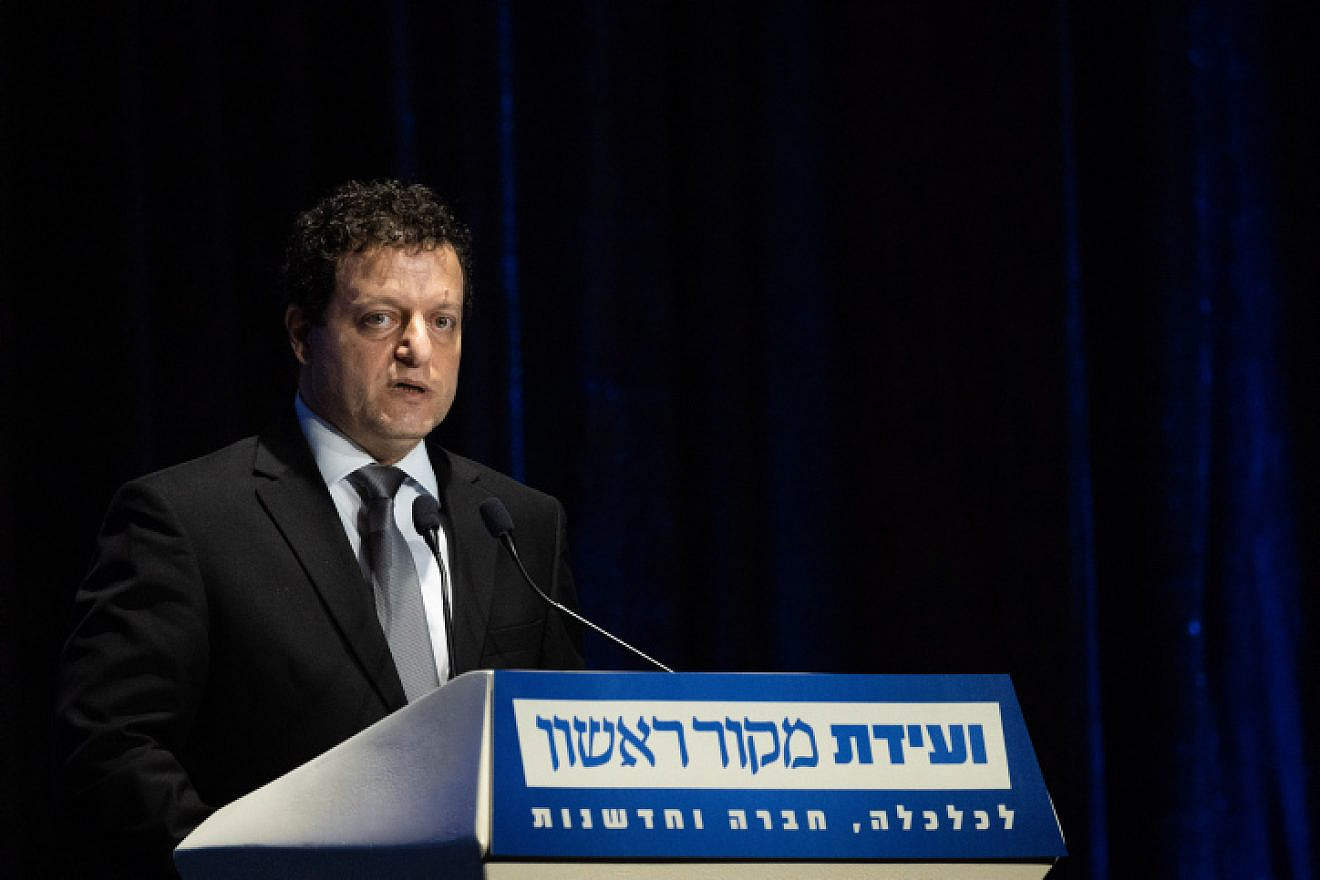Israeli banks this week made the controversial decision to freeze the accounts of two Israelis sanctioned by the United States under an executive order signed by President Joe Biden. It is believed that the accounts of two other sanctioned Israelis will be frozen shortly. The EO states that the four are guilty of “Undermining Peace, Security, and Stability in the West Bank.”
Bank Leumi—Israel’s largest bank—informed Yinon Levi, the proprietor of the Meitarim Farm in the Southern Hebron Hills, that his accounts would be suspended.
“The executive order is a result of requests to Biden by the anarchist, anti-Zionist left, which hates the Jewish people and made up a bunch of stories about Israel’s pioneers,” said Levi in response to the move, according to Kan News. “Biden, who isn’t able to deal with the Houthis who are murdering American soldiers, doesn’t scare us. We will continue to settle the Land of Israel without fear or angst,” Levi added.
The second Israeli, David Chai Chasdai from Givat Ronen in northern Samaria, had his account at the state-owned Postal Bank suspended.
Numerous media reports indicate the other two Israelis who were sanctioned—Einan Tanjil from Kiryat Ekron (not part of Judea and Samaria) and Shalom Zicherman from Mizpe Yair, also in the southern Hebron Hills, will have their accounts at Bank Hapoalim suspended at any moment.
The EO accuses all four men of various forms violence or threats of violence against Arabs in Judea and Samaria. However, it appears that of the four, only Chasdai has ever run afoul of Israeli authorities.
In 2023, Chasdai was sentenced to four months’ administrative detention (meaning to be held without charges) following his participation in a riot in the P.A. town of Huwara. The riot came in response to a shooting attack in Huwara a day earlier in which two Israelis were murdered by an Arab terrorist. A Lod District Court Judge reduced his sentence by a month.
But on what basis are Israeli banks suspending citizens’ accounts based on U.S. sanction, especially given that three out of the four Israelis haven’t been prosecuted?
According to “Z,” a senior banking official in Israel’s private sector, who spoke to JNS on condition of anonymity, “When the Americans put sanctions on an individual, everyone cooperates. No bank will ignore U.S. sanctions because doing so could cause a bank to collapse.”
Z elaborated: “If Bank Leumi for example were to ignore the sanctions they would be blacklisted. If Leumi were to keep this guy’s accounts open, U.S. authorities could accuse it of non-compliance. That would mean that no other international bank or financial institution would do business with you.”
“It’s a global world,” he added. “If you want to stay clean, you cooperate with American sanctions; if you ignore them, you can actually be put out of business.”
However, according to international attorney and U.S. law expert Marc Zell, Israeli banks have crossed a red line. In his view, the banks’ actions are “illegal and completely unjustified.”
Zell has formed a team of attorneys who will be challenging Biden’s EO in U.S. federal court.
“The EO has a provision indicating that anyone who contributes aid toward these four individuals is subject to sanction themselves. However, in my view that doesn’t legally apply to Israeli banks,” he said.
“The banks in Israel are running scared. They are taking on an expansive reading of the EO so they don’t have any possible exposure to sanctions,” he added.
Zell cited the case of Russian oligarch and politician Roman Abramovich, who was sanctioned, along with a group of six other oligarchs, by numerous countries including the United States and the United Kingdom following Russia’s invasion of Ukraine. The sanctions were applied as a result of Abramovich’s alleged ties to Russian President Vladimir Putin and the Kremlin.
According to Zell, after sanctions were levied, Abramovich, who also holds Israeli (and Portuguese) citizenship, attempted to donate four million shekels to ZAKA, Israel’s primary non-governmental rescue and recovery organization, and Israel’s Mizrahi Bank refused to honor the transfer.
He said the case went to Israel’s district court, where the judge ruled that under Israeli law, Mizrahi must carry out the transfer.
“The attempt by Mizrahi to apply U.S. law to the case was improper,” said Zell. Mizrahi Bank has filed an appeal with Israel’s Supreme Court.
“When it comes to closing the accounts of the four sanctioned Israelis, the banks in Israel are simply overreacting,” said Zell.
Eugene Kontorovich, professor of law at the Antonin Scalia Law School, George Mason University, told JNS the EO could theoretically apply to a wide swath of Israelis.
“Biden’s executive order is not about ‘violent settlers.’ It’s actually much broader and applies to anyone who opposes the current U.S. administration’s vision for a two-state solution. There is no requirement of violence,” he said.
“Anyone who they see as contradicting their vision for peace in the Middle East can be sanctioned. This includes Israeli politicians, or ordinary citizens, so we’re talking about most Israelis,” he added.
He described the EO as hypocritical, noting that no sanctions were levied on the Palestinian Authority.
According to Kontorovich, “the EO can be applied to whomever they view as a destabilizing force in the West Bank. However, they aren’t applying it to the P.A. leaders who pay terrorists as part of their ‘pay to slay’ program. Somehow that’s not considered destabilizing in the Middle East.”


























